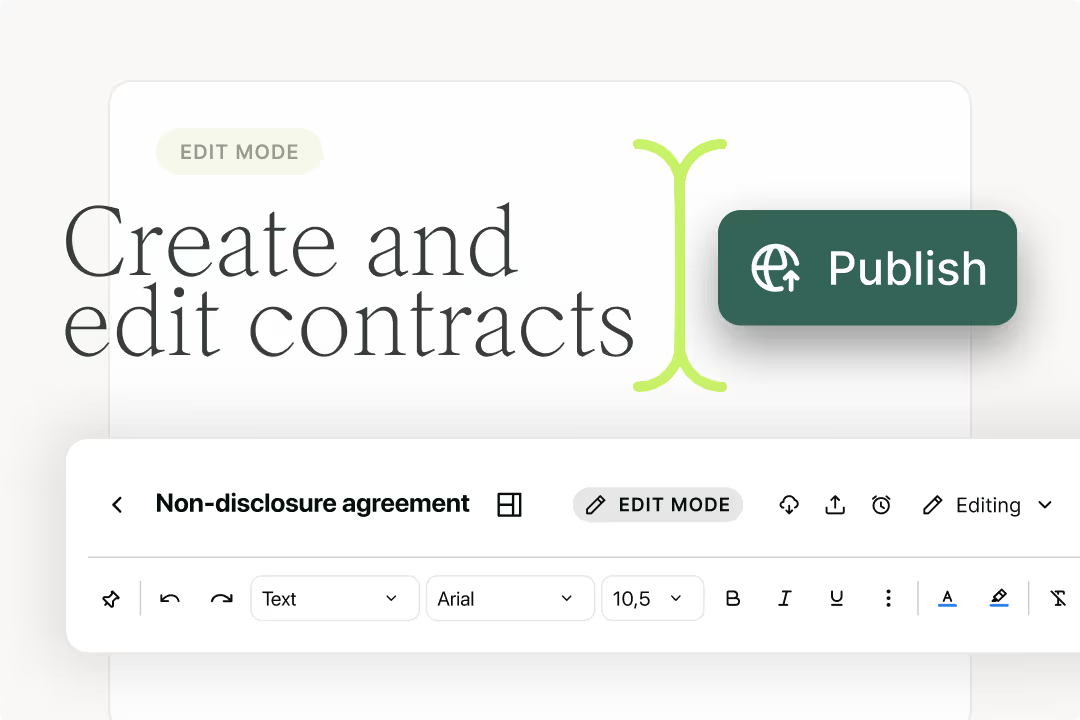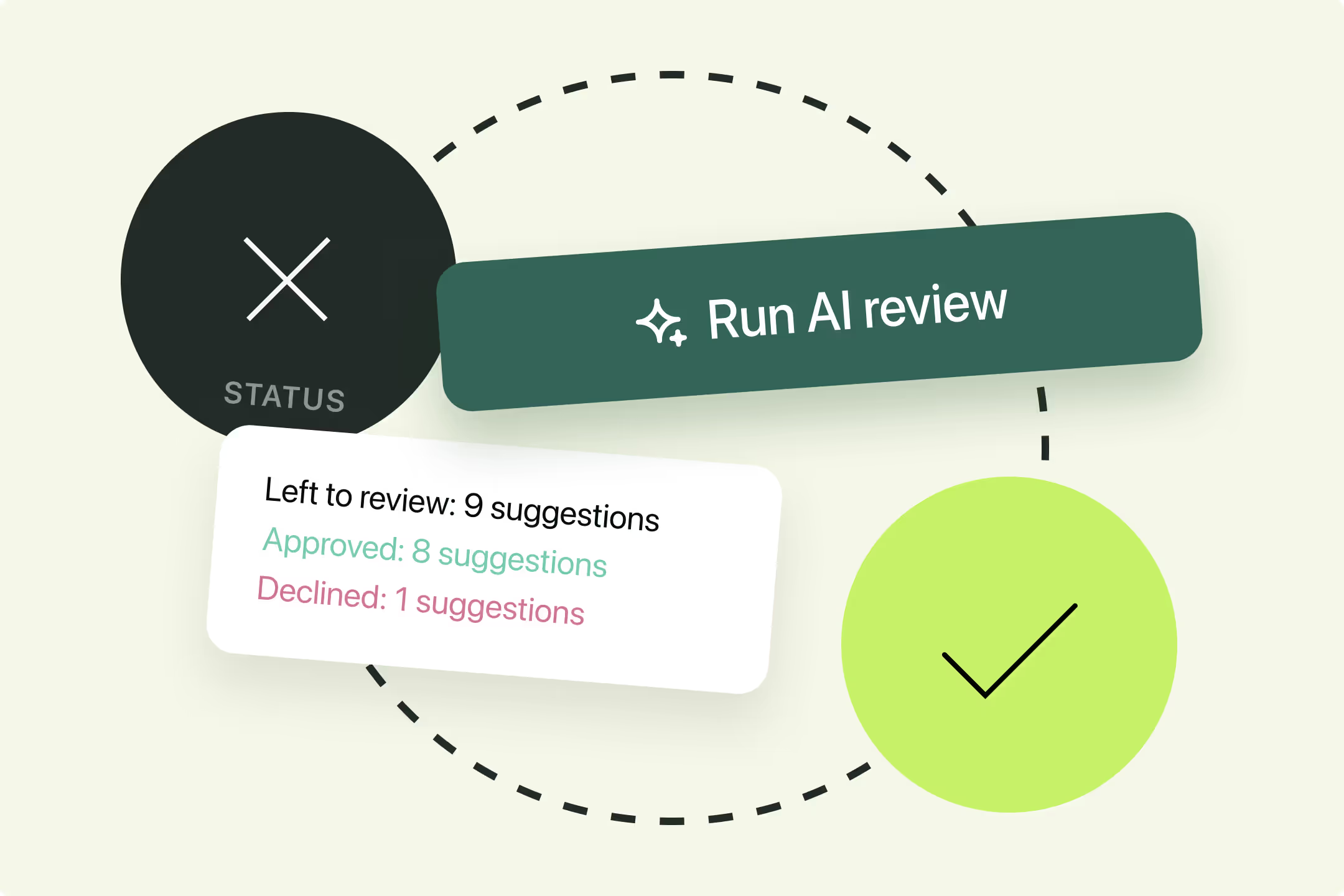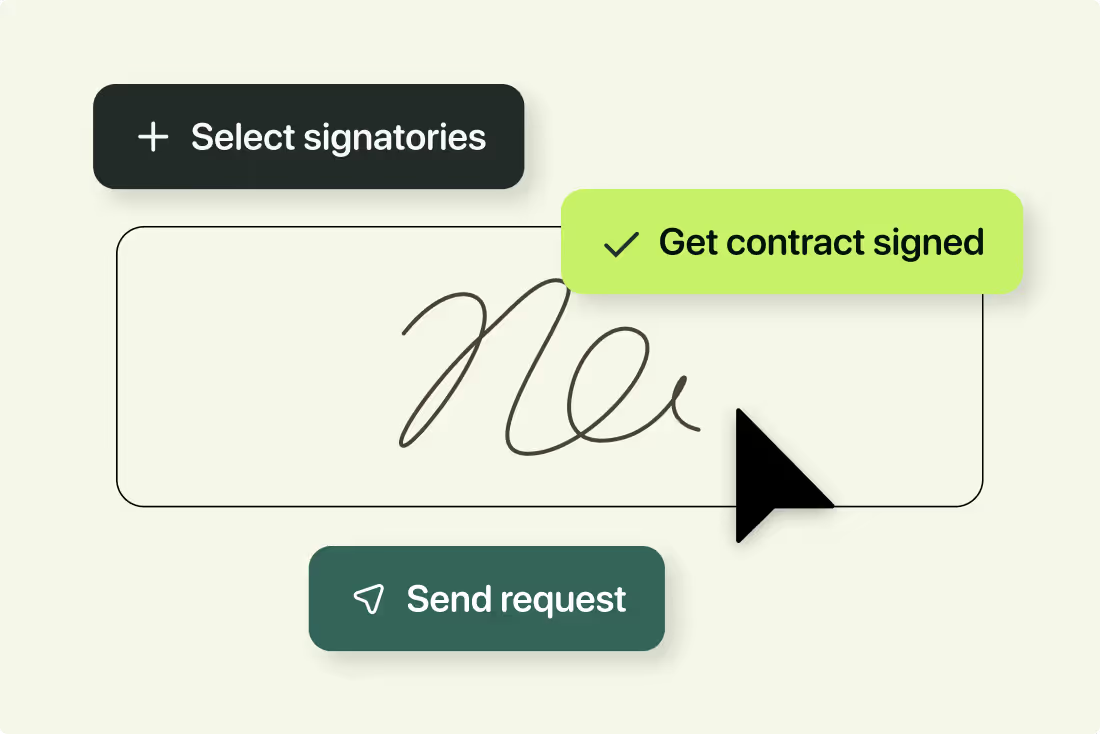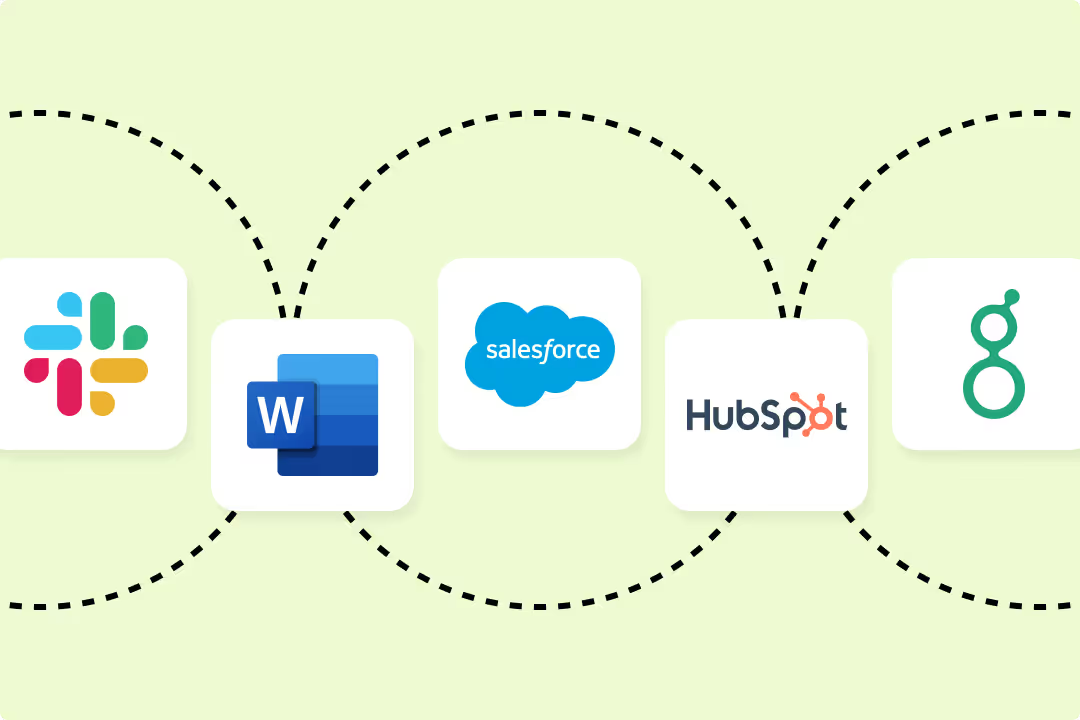Solutions
Customer Support
Resources
Understanding which contract lifecycle management (CLM) software suits your needs can feel overwhelming.
The market is saturated with options, each promising to be the "perfect" solution. If you’re new to CLM tools or had a disappointing experience in the past, the stakes feel even higher.
Choosing the wrong tool can mean wasted resources, frustration, and reputational damage. But selecting the right software? That’s transformative. It can empower teams to work faster, reduce risks, and create meaningful insights from your contracts.
To simplify the decision, we’ve identified the 11 must-have CLM software requirements for 2026. These are the capabilities that will separate tools that truly add value from those that fall short.
From using AI to integrating seamlessly with your workflows, these features represent the cutting edge of contract management. Let’s break them down.
Since contract lifecycle management covers the entire contract workflow, it’s important for businesses to consider how different CLM platforms deliver value at the various stages.
Some contract tools will serve as point-solutions, meaning that they only deliver value at a specific stage, like contract review software, or eSigning software. However, this can become costly and create friction throughout the contract lifecycle as you need to pay for and jump between several different tools.
An end-to-end contract lifecycle management solution like Juro removes this friction, allowing businesses to create, agree, and manage contracts from start to finish within the platform.
{{quote1}}
The ability to automate contracts is another important CLM requirement. Automated contract templates enable teams to quickly and efficiently generate agreements in just a few clicks.

CLM tools with this functionality enable teams to initiate contracts in seconds by completing a series of questions, or by pulling the contract data in from another platform via an integration.
This significantly speeds up the contract creation process, eliminating the need for manual drafting, editing and manual data entry. It also empowers commercial teams to self-serve on contracts with confidence.
Contracts are sensitive documents, meaning that businesses need to control who can access, amend, and approve them. But this is only possible when your CLM has the right access controls and role assignment functionality in place.
What this contract lifecycle management requirement looks like can vary between vendors. However, there are a few things you should look out for when evaluating a CLM, including:
These CLM features ensure that the right contracts land in the hands of the right people, and at the right time. Without this, you can find the security of your contracts jeopardized.
Juro does all of the above, allowing teams to retain control over contracts and their content.
The ability to collaborate on contracts in real time is a crucial CLM requirement for businesses that want to review, approve and negotiate contracts faster.
Traditionally, the process of agreeing a contract was a painful one, full of friction. It involved sharing drafts via email, moving them into Word for redlining, and then repeating the process until both parties agree terms.
Collaborative contract lifecycle management software ends this friction by enabling parties to collaborate on contracts in one unified workspace.

For example, Juro users can add redlines, internal and external comments to a contract, all without leaving their browser. This makes it easy to negotiate contracts with counterparties in real-time, without jumping between multiple tools and files.
Advanced eSignature functionality will be a contract lifecycle management requirement for many businesses since having a secure, legally binding way to sign contracts is non-negotiable.
Put simply, an advanced electronic signature is a method of signing a contract electronically that complies with EU regulations. It involves additional user authentication measures and is crucial to agreeing certain types of contracts in certain jurisdictions.
Juro's advanced electronic signature (AdES) standard complies with eIDAS, E-SIGN and UETA acts, meaning it meets stringent security standards around the world.

Juro creates an immutable document record for contracts, with identity verification and a detailed audit trail of key actions, giving you confidence that the right individual has signed the right contract, at the right time.
Other key CLM requirements related to eSigning can include the ability to sign contracts quickly on any device and set sequential signatories, also known as signing orders.
Bulk actions are another popular CLM requirement, with this functionality allowing businesses to upload, create and sign contracts at scale.
Rather than manually opening and signing contracts individually, signatories can select contracts in bulk and sign them in one go. This capability is particularly useful for HR use cases where new or updated agreements are shared with employees in bulk and need to be signed by the relevant stakeholder.
To find out more about bulk actions and how they can enable you to agree contracts faster, check out this guide to bulk actions in 2026.
Research by IACCM reveals that only 22 per cent of companies are very confident in their ability to track and manage contracts. The cause? Poor contract storage that fails to provide visibility into contracts.
Rather than having signed copies scattered across shared drives, businesses need a secure, organized approach to storing their contracts.
Fortunately, with the right CLM platform, companies can store, track, filter and query their contracts in seconds. This can be achieved through a data-rich contract repository that captures contract metadata automatically and allows users to search through contracts at scale.
It’s also worth looking for a CLM tool with a contract dashboard because this makes viewing and understanding this data quick and easy.

Missed contract renewal deadlines and obligations can quickly become costly for businesses, so it’s important to find a CLM solution that gives you visibility into these contract milestones ahead of time.
Automated contract reminders are a core CLM requirement for businesses that want to regain control of their post-signature contract management. CLM solutions like Juro can track and send reminders for key contract dates, making it easy to track your contracts and any action required without manually checking and updating spreadsheets.
{{quote2}}
Integrations are another important contract lifecycle management requirement to consider, especially if you’re looking for opportunities to automate the contract creation process.
In particular, integrations with tools like Salesforce, HubSpot, and Pipedrive can empower sales reps to generate contracts in a matter of seconds, without leaving their CRM. Integrations with HR systems like Workday and Greenhouse can drive similar efficiencies for people and talent teams, making it quicker and easier to formalize new hires.
Different CLM vendors will offer different integrations, so it’s important to compare both what these are and how they’d work for workflows like yours.

When you choose a CLM vendor, you’re entrusting them with your most valuable business information. You need to make sure they’re committed to safeguarding the confidentiality, integrity and availability of your data.
This means having robust physical security, regular monitoring and robust access controls. It also means demonstrating compliance with rigorous attestations and regulatory requirements.
To find out exactly what to look out for when assessing a CLM’s security, check out Juro’s trust centre.
Fast and effective implementation is one of the most important CLM requirements since failed deployments can be costly.
When you’re comparing vendors, you want a solution that can give you value quickly, not one you have to wait between six to twelve months to roll out. You also want a solution that is low maintenance and enables you to self-serve, not one that requires you to contact the vendor every time you want to make small tweaks to templates and workflows.
That’s where Juro differs from legacy CLM platforms.
{{quote3}}
Juro currently leads the contract management category for fastest implementation and ease of setup, according to independent reviews on G2. In fact, Juro can be implemented in as little as 30 days.
Want to make sure your CLM implementation runs smoothly? Get in touch.
Juro's end-to-end platform powers the entire contract lifecycle from initiation through to renewal all within a secure, browser-native environment. Juro has all of the functionality described above, and more, enabling legal and business teams to agree contracts to 10x faster.
To find out more about Juro's contract automation platform and how it can meet your needs, fill in the form below.

Lorem ipsum dolor sit amet, consectetur adipiscing elit. Suspendisse varius enim in eros elementum tristique. Duis cursus, mi quis viverra ornare, eros dolor interdum nulla, ut commodo diam libero vitae erat. Aenean faucibus nibh et justo cursus id rutrum lorem imperdiet. Nunc ut sem vitae risus tristique posuere.

